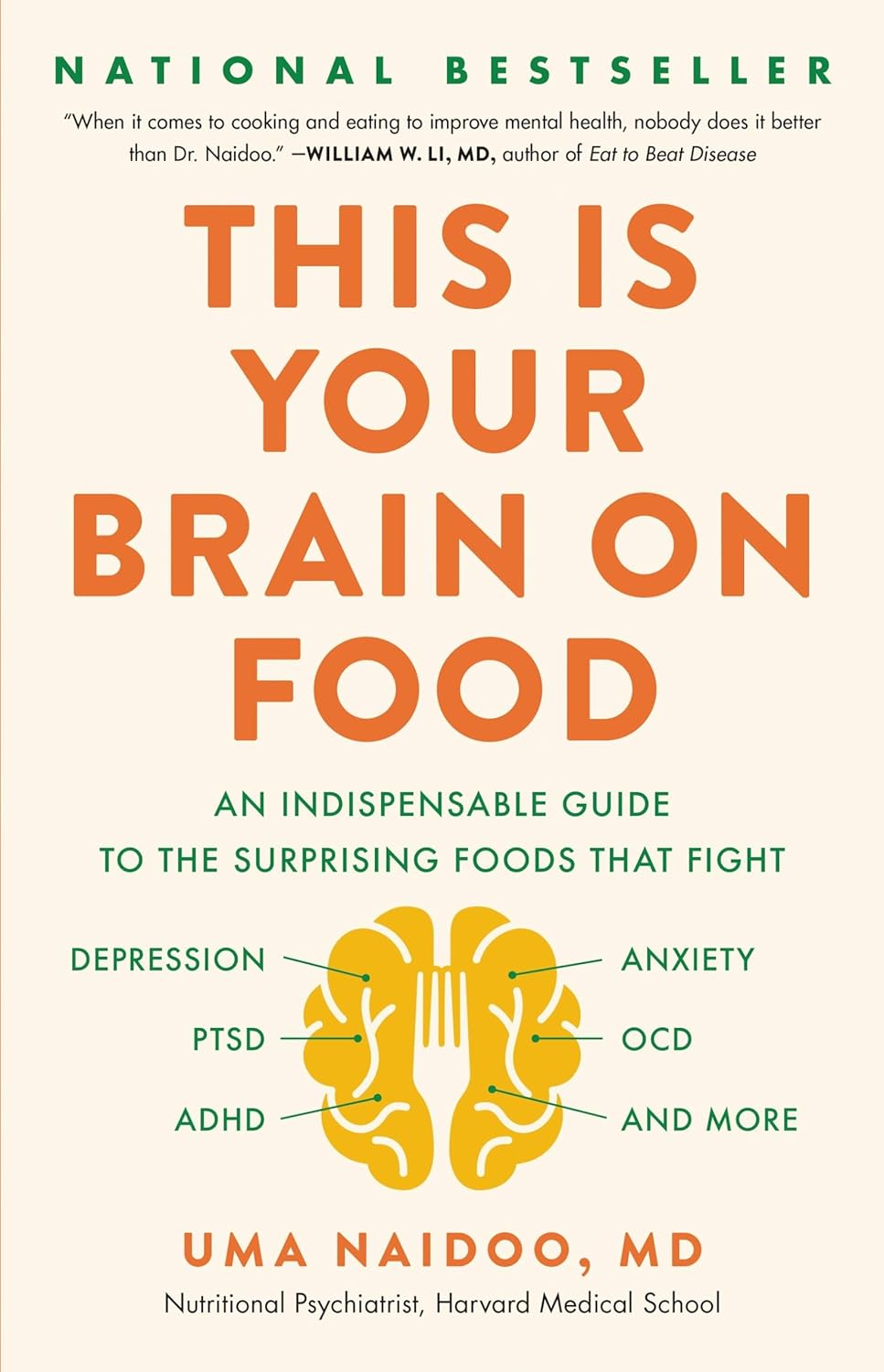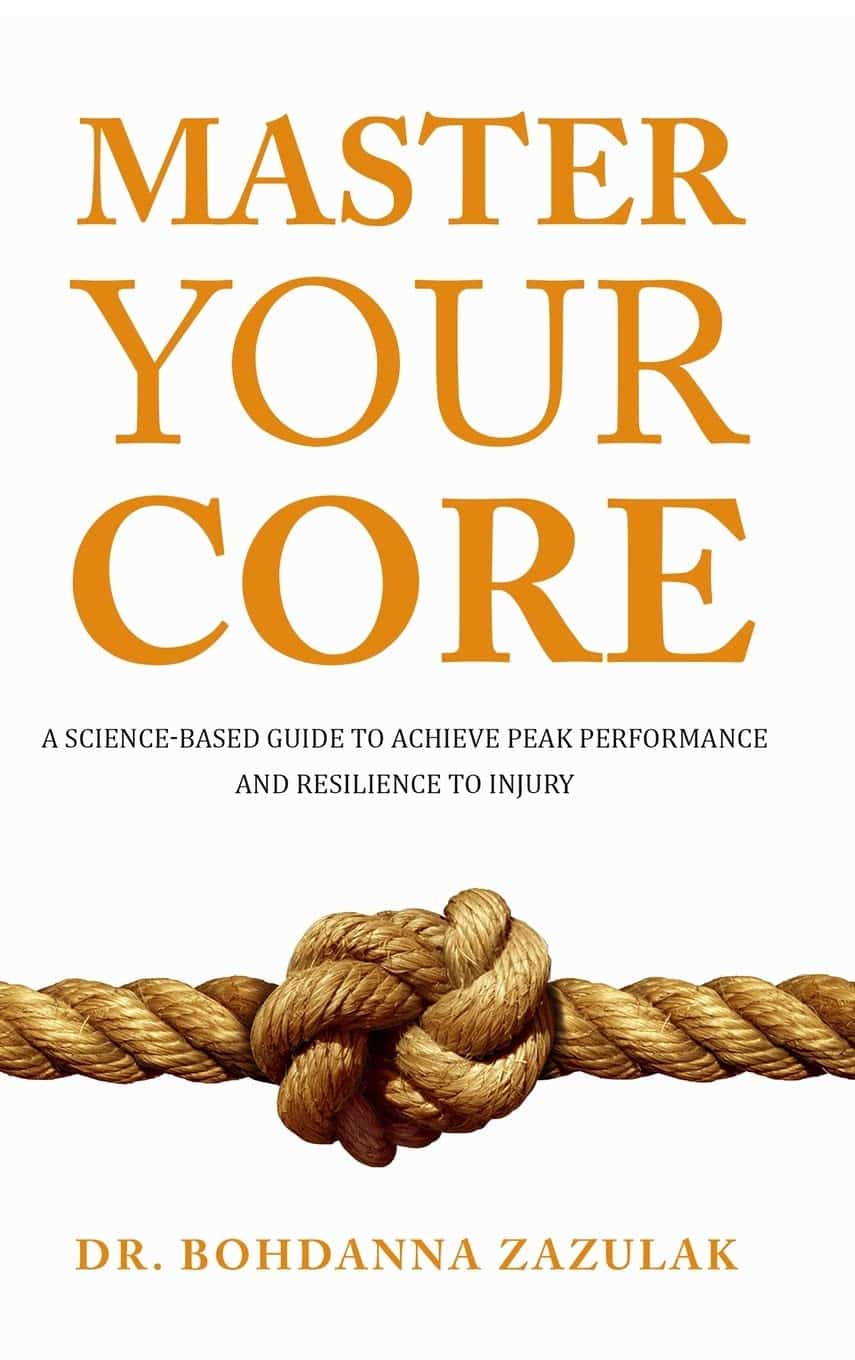
Who you are and where you live shouldn’t determine your ability to survive cancer
10almonds is reader-supported. We may, at no cost to you, receive a portion of sales if you purchase a product through a link in this article.
In Canada, nearly everyone has a cancer story to share. It affects one in every two people, and despite improvements in cancer survivorship, one out of every four people affected by cancer still will die from it.
As a scientist dedicated to cancer care, I work directly with patients to reimagine a system that was never designed for them in the first place – a system in which your quality of care depends on social drivers like your appearance, your bank statements and your postal code.
We know that poverty, poor nutrition, housing instability and limited access to education and employment can contribute to both the development and progression of cancer. Quality nutrition and regular exercise reduce cancer risk but are contingent on affordable food options and the ability to stay active in safe, walkable neighbourhoods. Environmental hazards like air pollution and toxic waste elevate the risk of specific cancers, but are contingent on the built environment, laws safeguarding workers and the availability of affordable housing.
On a health-system level, we face implicit biases among care providers, a lack of health workforce competence in addressing the social determinants of health, and services that do not cater to the needs of marginalized individuals.
Indigenous peoples, racialized communities, those with low income and gender diverse individuals face the most discrimination in health care, resulting in inadequate experiences, missed diagnosis and avoidance of care. One patient living in subsidized housing told me, “You get treated like a piece of garbage – you come out and feel twice as bad.”
As Canadians, we benefit from a taxpayer funded health-care system that encompasses cancer care services. The average Canadian enjoys a life expectancy of more than 80 years and Canada boasts high cancer survival rates. While we have made incredible strides in cancer care, we must work together to ensure these benefits are equally shared amongst all people in Canada. We need to redesign systems of care so that they are:
- Anti-oppressive. We must begin by understanding and responding to historical and systemic racism that shapes cancer risk, access to care and quality of life for individuals facing marginalizing conditions. Without tackling the root causes, we will never be able to fully close the cancer care gap. This commitment involves undoing intergenerational trauma and harm through public policies that elevate the living and working conditions of all people.
- Patient-centric. We need to prioritize patient needs, preferences and values in all aspects of their health-care experience. This means tailoring treatments and services to individual patient needs. In policymaking, it involves creating policies that are informed by and responsive to the real-life experiences of patients. In research, it involves engaging patients in the research process and ensuring studies are relevant to and respectful of their unique perspectives and needs. This holistic approach ensures that patients’ perspectives are central to all aspects of health care.
- Socially just. We must strive for a society in which everyone has equal access to resources, opportunities and rights, and systemic inequalities and injustices are actively challenged and addressed. When redesigning the cancer care system, this involves proactive practices that create opportunities for all people, particularly those experiencing the most marginalization, to become involved in systemic health-care decision-making. A system that is responsive to the needs of the most marginalized will ultimately work better for all people.
Who you are, how you look, where you live and how much money you make should never be the difference between life and death. Let us commit to a future in which all people have the resources and support to prevent and treat cancer so that no one is left behind.
This article is republished from HealthyDebate under a Creative Commons license. Read the original article.
Don’t Forget…
Did you arrive here from our newsletter? Don’t forget to return to the email to continue learning!
Recommended
Learn to Age Gracefully
Join the 98k+ American women taking control of their health & aging with our 100% free (and fun!) daily emails:
-
This Is Your Brain on Food – by Dr. Uma Naidoo
10almonds is reader-supported. We may, at no cost to you, receive a portion of sales if you purchase a product through a link in this article.
“Diet will fix your brain” is a bold claim that often comes from wishful thinking and an optimistic place where anecdote is louder than evidence. But, diet does incontrovertibly also affect brain health. So, what does Dr. Naidoo bring to the table?
The author is a Harvard-trained psychiatrist, a professional chef who graduated with her culinary school’s most coveted award, and a trained-and-certified nutritionist. Between those three qualifications, it’s safe to she knows her stuff when it comes to the niche that is nutritional psychiatry. And it shows.
She takes us through the neurochemistry involved, what chemicals are consumed, made, affected, inhibited, upregulated, etc, what passes through the blood-brain barrier and what doesn’t, what part the gut really plays in its “second brain” role, and how we can leverage that—as well as mythbusting a lot of popular misconceptions about certain foods and moods.
There’s hard science in here, but presented in quite a pop-science way, making for a very light yet informative read.
Bottom line: if you’d like to better understand what your food is doing to your brain (and what it could be doing instead), then this is a top-tier book for you!
Click here to check out This Is Your Brain On Food, and get to know yours!
Share This Post
-
Eggplant vs Tomato – Which is Healthier?
10almonds is reader-supported. We may, at no cost to you, receive a portion of sales if you purchase a product through a link in this article.
Our Verdict
When comparing eggplant to tomato, we picked the eggplant.
Why?
Both have their merits! But…
In terms of macros, eggplant has nearly 3x the fiber, as well as slightly more carbs and protein, making it the most nutritionally dense option in the macros category.
In the category of vitamins, eggplant has more of vitamins B1, B2, B3, B5, B6, B9, and choline, while tomatoes have more of vitamins A, C, E, and K. So, very different vitamin coverage from each one, and/but by the numbers, eggplant wins.
When it comes to minerals, eggplant has more copper, magnesium, manganese, and selenium, while tomatoes have more calcium and iron. The margins of difference are very small in all cases, and they’re equal in phosphorus, potassium, and zinc. So this one’s very close, but by the numbers, eggplant scrapes a marginal victory.
Looking at phytochemicals, they’re about equal on polyphenols, though it’s worth mentioning that tomatoes are a famously good source of lycopene, which isn’t a polyphenol, but it is a very beneficial carotenoid, so we’ll say tomatoes get the win this round.
Adding up the sections, though, makes for an overall win for eggplant, but tomatoes are great too, and mostly in different ways than eggplant, which makes them extra good to enjoy together (salad, ratatouille, etc) for their very complementary health benefits!
Want to learn more?
You might like:
Lycopene’s Benefits For The Gut, Heart, Brain, & More
Enjoy!
Share This Post
-
Master Your Core – by Dr. Bohdanna Zazulak
10almonds is reader-supported. We may, at no cost to you, receive a portion of sales if you purchase a product through a link in this article.
In the category of “washboard abs”, this one isn’t particularly interested in how much or how little fat you have. What it’s more interested in is a strong, resilient, and stable core. Including your abs yes, but also glutes, hips, and back.
Nor is the focus on superhuman feats of strength, though certainly one could use these exercises to work towards that. Rather, here we see importance placed on functional performance, mobility, and stability.
Lest mobility and stability seem at odds with each other, understand:
- By mobility we mean the range of movement we are able to accomplish.
- By stability, we mean that any movement we make is intentional, and not because we lost our balance.
Functional performance, meanwhile, is a function of those two things, plus strength.
How does the book deliver on this?
There are exercises to do. Exercises of the athletic kind you might expect, and also exercises including breathing exercises, which gets quite a bit of attention too. Not just “do abdominal breathing”, but quite an in-depth examination of such. There are also habits to form, and lifestyle tweaks to make.
Of course, you don’t have to do all the things she suggests. The more you do, the better results you are likely to get, but if you adopt even some of the practices she recommends, you’re likely to see some benefits. And, perhaps most importantly, reduce age-related loss of mobility, stability, and strength.
Bottom line: a great all-rounder book of core strength, mobility, and stability.
Click here to check out Master Your Core and enjoy the more robust health that comes with it!
Share This Post
Related Posts
-
Human, Bird, or Dog Waste? Scientists Parsing Poop To Aid DC’s Forgotten River
10almonds is reader-supported. We may, at no cost to you, receive a portion of sales if you purchase a product through a link in this article.
KFF Health News Peggy Girshman reporting fellow Jackie Fortiér joined a boat tour to spotlight a review of microbes in the Anacostia River, a step toward making the river healthier and swimmable. The story was featured on WAMU’s “Health Hub” on Feb. 26.
On a bright October day, high schoolers from Francis L. Cardozo Education Campus piled into a boat on the Anacostia River in Washington, D.C. Most had never been on the water before.
Their guide, Trey Sherard of the Anacostia Riverkeeper, started the tour with a well-rehearsed safety talk. The nonprofit advocates for the protection of the river.
A boy with tousled black hair casually dipped his fingers in the water.
“Don’t touch it!” Sherard yelled.
Why was Sherard being so stern? Was it dangerously cold? Were there biting fish?
Because of the sewage.
“We get less sewage than we used to. Sewage is a code word for what?” Sherard asked the teenagers.
“Poop!” one student piped up.
“Human poop,” Sherard said. “Notice I didn’t say we get none. I said we get what? Less.”
Tours like this are designed to get young people interested in the river’s ecology, but it’s a fine line to tread — interacting with the water can make people sick. Because of the health risks, swimming hasn’t been legal in the Anacostia for more than half a century. The polluted water can cause gastrointestinal and respiratory illnesses, as well as eye, nose, and skin infections.
The river is the cleanest it’s been in years, according to environmental experts, but they still advise you not to take a dip in the Anacostia — not yet, at least.
About 40 million people in the U.S. live in a community with a combined sewer system, where wastewater and stormwater flow through the same pipes. When pipe capacities are reached after heavy rains, the overflow sends raw wastewater into the rivers instead of to a treatment plant.
Federal regulations, including sections of the Clean Water Act, require municipalities such as Washington to reduce at least 85% of this pollution or face steep fines.
To achieve compliance, Washington launched a $2.6 billion infrastructure project in 2011. DC Water’s Clean Rivers Project will eventually build multiple miles-long underground storage basins to capture stormwater and wastewater and pump it to treatment plants once heavy rains have subsided.
The Anacostia tunnel is the first of these storage basins to be completed. It can collect 190 million gallons of bacteria-laden wastewater for later treatment, said Moussa Wone, vice president of the Clean Rivers Project.
Climate change is causing more intense rainstorms in Washington, so even after construction is complete in 2030, Wone said, untreated stormwater will be discharged into the river, though much less frequently.
“On the Anacostia, we’re going to be reducing the frequency of overflows from 82 to two in an average year,” Wone said.
But while the Anacostia sewershed covers 176 square miles, he noted, only 17% is in Washington.
“The other 83% is outside the district,” Wone said. “We can do our part, but everybody else has to do their part also.”
Upstream in Maryland’s Montgomery and Prince George’s counties, miles of sewer lines are in the process of being upgraded to divert raw sewage to a treatment plant instead of the river.
The data shows that poop is a problem for river health — but knowing what kind of poop it is matters. Scientists monitor E. coli to indicate the presence of feces in river water, but since the bacteria live in the guts of most warm-blooded animals, the source is difficult to determine.
“Is it human feces? Or is it deer? Is it gulls’? Is it dogs’?” said Amy Sapkota, a professor of environmental and occupational health at the University of Maryland.
Bacterial levels can fluctuate across the river even without rainstorms. An Anacostia Riverkeeper report found that in 2023 just three of nine sites sampled along the Washington portion of the watershed had consistently low E. coli levels throughout the summer season.
Sapkota is heading a new bacterial monitoring program measuring the amount of E. coli that different animal species deposit along the river.
The team uses microbial source tracking to analyze samples of river water taken from different locations each month by volunteers. The molecular approach enables scientists to target specific gene sequences associated with fecal bacteria and determine whether the bacteria come from humans or wildlife. Microbial source tracking also measures fecal pollution levels by source.
“We can quantify the levels of different bacterial targets that may be coming from a human fecal source or an animal fecal source,” Sapkota said.
Her team expects to have preliminary results this year.
The health risk to humans from river water will never be zero, Sapkota said, but based on her team’s research, smart city planning and retooled infrastructure could lessen the level of harmful bacteria in the water.
“Let’s say that we’re finding that actually there’s a lot of deer fecal signatures in our results,” Sapkota said. “Maybe this points to the fact that we need more green buffers along the river that can help prevent fecal contaminants from wildlife from entering the river during stormwater events.”
Washington is hoping to recoup some of the cost of building green spaces and other river cleanup. In January, the office of D.C. Attorney General Brian Schwalb filed a lawsuit seeking unspecified damages from the federal government over decades of alleged pollution of the Anacostia River.
Brenda Lee Richardson, coordinator of the Anacostia Parks & Community Collaborative, said the efforts to cut down on trash and sewage are paying off. She sees a river on the mend, with more plant and animal life sprouting up.
“The ecosystem seems a lot greener,” she said. “There’s stuff in the river now that wasn’t there before.”
But any changes to the waterfront need to be done with residents of both sides of the river in mind, she said.
“We want there to be some sense of equity as it relates to who has access,” she said. “When I look at who is recreating, it’s not people who look like me.”
Richardson has lived for 40 years in Ward 8 — a predominantly Black area on the east side of the river whose residents are generally less affluent than those on the west side. She and her neighbors don’t consider the Anacostia a place to get out and play, she said.
As the water quality slowly improves, Richardson said, she hopes the Anacostia’s reputation is also rehabilitated. Even if it’s not safe to swim in, Richardson enjoys boating trips like the one with the Anacostia Riverkeeper.
“To see all those creatures along the way and the greenery. It was comforting,” she said. “So rather than take a pill to settle my nerves, I can just go down the river.”
KFF Health News is a national newsroom that produces in-depth journalism about health issues and is one of the core operating programs at KFF—an independent source of health policy research, polling, and journalism. Learn more about KFF.
Subscribe to KFF Health News’ free Morning Briefing.
This article first appeared on KFF Health News and is republished here under a Creative Commons license.
Don’t Forget…
Did you arrive here from our newsletter? Don’t forget to return to the email to continue learning!
Learn to Age Gracefully
Join the 98k+ American women taking control of their health & aging with our 100% free (and fun!) daily emails:
-
Hazelnuts vs Pistachios – Which is Healthier?
10almonds is reader-supported. We may, at no cost to you, receive a portion of sales if you purchase a product through a link in this article.
Our Verdict
When comparing hazelnuts to pistachios, we picked the hazelnuts.
Why?
An argument could be made for either, depending on what we prioritize! So there was really no wrong answer here today, but it is good to know what each nut’s strengths are:
In terms of macros, pistachios have more fiber, carbs, protein, and (mostly healthy) fat. That does make them the “more food per food” option, but it’s worth noting that while hazelnuts have more fiber, they also have a higher margin of difference when it comes to their greater carb count, and resultantly, hazelnuts do have the lower glycemic index. That said, they’re still both low-GI foods, so we’ll call this section a win for pistachios overall.
When it comes to vitamins, hazelnuts have more of vitamins B3, B5, B9, C, E, K, and choline, while pistachios have more of vitamins A, B1, B2, and B6. So, a fair 7:4 win for hazelnuts here.
In the category of minerals, hazelnuts have more calcium, copper, iron, magnesium, manganese, and zinc, while pistachios have more phosphorus, potassium, and selenium. A clear 6:3 win for hazelnuts.
In short, both are good sources of many nutrients, so choose according to what you want to prioritize, or better yet, enjoy both.
Want to learn more?
You might like to read:
Why You Should Diversify Your Nuts
Take care!
Don’t Forget…
Did you arrive here from our newsletter? Don’t forget to return to the email to continue learning!
Learn to Age Gracefully
Join the 98k+ American women taking control of their health & aging with our 100% free (and fun!) daily emails:
-
Increase Your Muscle Mass Boost By 26% (No Extra Effort, No Supplements)
10almonds is reader-supported. We may, at no cost to you, receive a portion of sales if you purchase a product through a link in this article.
You’ve probably seen this technology advertised, but the trick is in how it’s used (which is not how most people use it).
It’s about neuromuscular electrical stimulation (NMES), also called electrical muscle stimulation (EMS); in other words, those squid-like electrode kits that promise “six-pack abs without exercise”, by stimulating the muscles for you—using the exact same tech as for transcutaneous electrical nerve stimulation (TENS), for pain relief.
Do they work for pain relief? Yes, for many people in any case. But that’s beyond the scope of today’s article.
Do they work for building muscles as advertised? No. The limiting factor is that they can’t fully exert the muscles in the same way actual exercise can, because of the limitations to how much electrical current can safely be applied.
However…
The cyborgization of your regular workout
A meta-analysis of 13 studies compared two [meta-]groups of exercisers:
- Group 1 doing conventional resistance training
- Group 2 doing the same resistance training, plus NMES at the same time (specifically: NMES of the same muscles being used in the workout)
The analysis had two output variables: strength and muscle mass
What they found: group 2 enjoyed more than 31% greater strength gains, and 26% greater muscle mass gains, from the same training over the same period of time.
Of course, one of the biggest challenges to strength gain and muscle mass gain is hitting a plateau, so it’s worth noting that when they looked at training periods ranging from 2 weeks to 16 weeks, longer durations yielded better results—it is, it seems, the gift that keeps on giving.
You can find the paper here (which also explains how they analysed data from 13 different studies to get one coherent set of results):
How it works and why it matters
While the paper itself does not go into how it works, a reasonable hypothesis is that it works by “confusing” the muscles—because they are receiving mixed signals (one set from your brain, one set from the electrodes), with fast- and slow-twitch muscle fibers both working at the same time.
Another way to “confuse” the muscles is by High Intensity [Interval] Resistance Training (HIRT)—which is basically High Intensity Interval Training (HIIT), but for resistance training specifically.
See: How To Do HIIT (Without Wrecking Your Body) and HIIT, But Make It HIRT
Now, we want to confuse our muscles, not our readers, so if that’s all too much to juggle at once, just pick one and go with it. But today’s article is about the RT+NEMS combination, so perhaps you’ll pick that.
Why it matters: as we get older, sarcopenia (the loss of muscle mass) becomes more of an issue, and even if we’re not inclined to a career in bodybuilding, we do still need to at least maintain a healthy muscle mass because:
- Strong muscles improve our stability and make us less likely to fall
- Strong muscles force the body to build strong bones to hold them on, which means lower risk of fractures or worse
- Muscle mass itself improves the body’s basal metabolic rate, which means systemic benefits to the whole body (including against metabolic diseases especially)
See also: Resistance Is Useful! (Especially As We Get Older)
Want to try it?
If you don’t already have a NMES/EMS/TENS kit lying around the house, here’s an example product on Amazon—remember to use it simultaneously with your regular resistance training workout, on the same muscles at the same time, to get the benefit we talked about! 😎
Enjoy!
Don’t Forget…
Did you arrive here from our newsletter? Don’t forget to return to the email to continue learning!
Learn to Age Gracefully
Join the 98k+ American women taking control of their health & aging with our 100% free (and fun!) daily emails:







